I was listening to Rob Charry and Hollis Thomas on WIP Saturday afternoon.
Hollis was doing his “On This Date” segment – and suddenly I heard Hollis mention the name of Steve Bilko.
I couldn’t tweet Hollis fast enough.
First off, Hollis, I was mistaken. Steve Bilko played for the Los Angeles Angels – who were the cross-town rivals of the Hollywood Stars. Both were minor league teams in the AAA Pacific Coast League.
Bilko had some interesting teammates – Gene Mauch, Tommy LaSorda, and Sparky Anderson to name three. All three would become pennant-winning managers.
If you’re wondering what happened to the Angels and Stars, both were forced out of business after the 1957 season. That’s because the New York Giants and Brooklyn Dodgers were relocating to San Francisco and Los Angeles for the 1958 season.
So here’s where my family intersects with Steve Bilko.
My grandparents were Polish immigrants who settled in Nanticoke, Pennsylvania – which was in the midst of the coal-mining country of Luzerne County. There, they opened the Beer Garden – a first-class bar and restaurant that catered to a Polish clientele.
Steve Bilko was born in Nanticoke. He was Polish and his parents frequented the Beer Garden. When Steve became a local baseball star, everyone in the Polish community followed his progress through high school and through the minors – and all the way up to his being promoted to the St. Louis Cardinals in 1953.
On the night of July 25, 1953, the Cards came to town to play the Phillies. My dad took me to Shibe Park to watch the game – and to meet Steve Bilko. I was ten years old.
At the time, the Cardinals thought enough of Steve Bilko’s potential to move Stan Musial from first base to leftfield to make room for Bilko at first.
During batting practice, my dad and I went down to field level behind first base. For a 10-year-old, it was a thrill to be shaking hands with a big leaguer – and obviously I’ve never forgotten it.
That night, it was Robin Roberts against Wilmer “Vinegar Bend” Mizell. It wasn’t a good night for the Cardinals – or for Steve Bilko. He went 0-for-4 and struck out twice as the Phillies beat the Cards 3-0.
Bilko would hit 21 HRs that year with 84 RBIs. But he tailed off the next season and the Cards traded him to the Cubs. He hit only eight home runs total and knocked in just 25 runs in 1954.
So the Cubs shipped him back to the minors – to the Los Angeles Angels of the AAA Pacific Coast League. With the Angels, he became a prodigious home-run hitter – and the toast of the town. Pacific Coast League baseball was big in L.A. and the rivalry between the Angels and Stars was intense.
The year before Steve Bilko arrived in L.A., the Angles were 73-92
– 1955 – In Bilko’s first year in town, he hit 37 HRs, drove in 124 runs, and batted .328 – and the Angels improved by 18 wins to 91-81.
– 1956 – Bilko won the Triple Crown by batting .360 with 55 home runs and 164 RBIs – and the Angels won the PCL championship with a robust record of 107-61. That was 34 more wins than when Bilko came to town two years earlier.
Bilko’s teammate and future Dodgers skipper Tommy LaSorda said that Steve Bilko’s name was in the headlines every day. LaSorda remembers shutting out the Stars one night – Bilko went for the collar. But the next day’s headlines didn’t mention LaSorda or his shutout. Instead, the next day’s headlines read – BILKO FAILS TO GET A HIT.
Steve Bilko’s name was on everyone’s guest list. An outgoing and personable man, he attended every soiree possible – in the process rubbing elbows with major players in the Hollywood community.
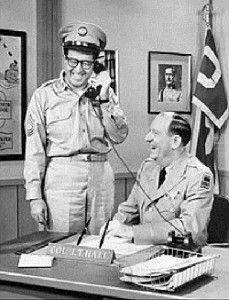 One of his biggest fans was Nat Hiken, who was in the process of creating The Phil Silvers Show – which was an Army sitcom starring Phil Silvers. Hiken decided to name his main character after Steve Bilko. So Phil Silvers’ character became Sgt. Ernie Bilko.
One of his biggest fans was Nat Hiken, who was in the process of creating The Phil Silvers Show – which was an Army sitcom starring Phil Silvers. Hiken decided to name his main character after Steve Bilko. So Phil Silvers’ character became Sgt. Ernie Bilko.
1957 – Bilko hit 56 HRs, knocked in 140 runs, and batted an even .300 – but the Angles dipped to 80-88.
The following season, Bilko was recalled to the majors and he played in the big leagues until 1962
Now getting back to my family, Steve Bilko spent his off-seasons back home in Nanticoke. He visited my grandparents’ Beer Garden just about every day and earned the reputation of eating a whole pot of Gołąbki (stuffed cabbage) and drinking a case of beer every time he came into the Beer Garden.
He gained weight and earned him the nickname “Stout Steve” as he ballooned to 250 pounds. In my father’s words – “Steve Bilko ate his way out of the big leagues”
Bilko’s teammate and future Dodgers skipper Tommy LaSorda said that Steve Bilko’s name was in the headlines every day. LaSorda remembers shutting out the cross-town rival Hollywood Stars one night – and Bilko went for the collar. But the next day’s headlines didn’t mention LaSorda or his shutout. Instead, the next day’s headlines read – BILKO FAILS TO GET A HIT.
Steve Bilko’s name was on everyone’s guest list. An outgoing and personable man, he attended every soiree possible – in the process rubbing elbows with major players in the Hollywood community.
One of his biggest fans was Nat Hiken, who was in the process of creating The Phil Silvers show – which was an Army sitcom starring Phil Silvers. Hiken decided to name his main character after Steve Bilko. So Phil Silvers’ character became Sgt. Ernie Bilko.
1957 – Bilko hit 56 HRs, knocked in 140 runs, and batted an even .300 – but the Angles dipped to 80-88.
It was a great three years with the Angels and earned Bilko a recall to the majors in 1958 – where he played until 1962.
Now getting back to my family, Steve Bilko spent his off-seasons back home in Nanticoke. He visited my grandparents’ Beer Garden just about every day and earned the reputation of eating a whole pot of Gołąbki –called Golumpki by non-Polaks – and drinking a case of beer every time he came into the Beer Garden.
He gained weight over the years and earned the nickname “Stout Steve” as he ballooned up to 250 pounds. As he gained wieght, his production fell off.
In my father’s words – “Steve Bilko ate his way out of the big leagues.”
Barry Bowe is the author of Born to Be Wild and 1964 – The Year the Phillies Blew the Pennant.
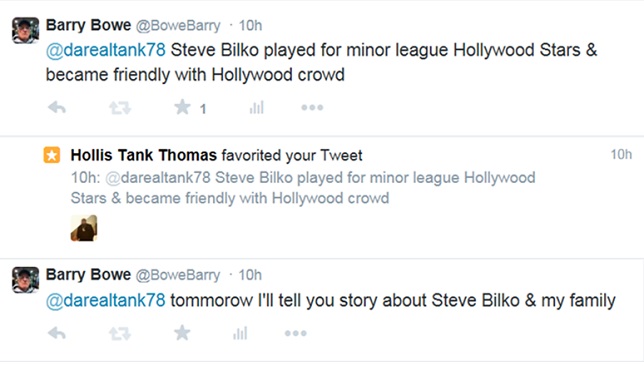


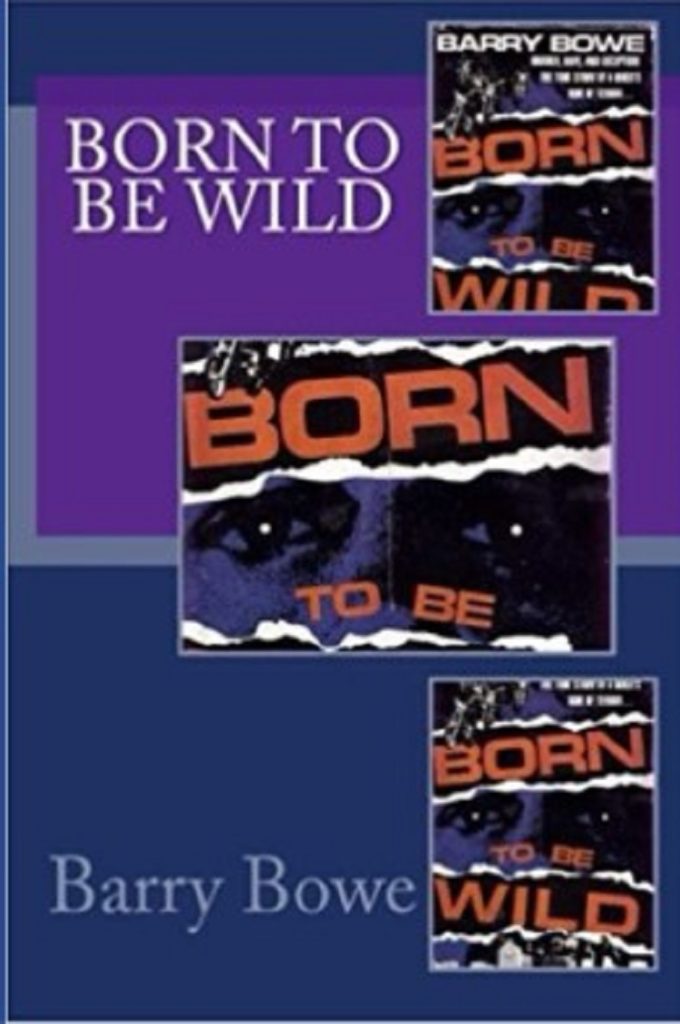


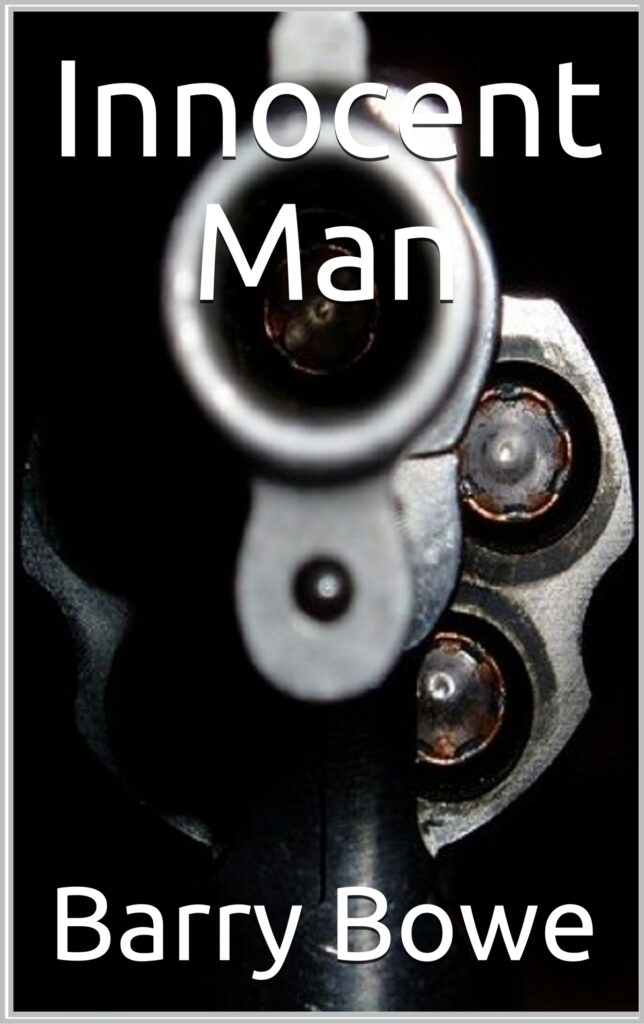
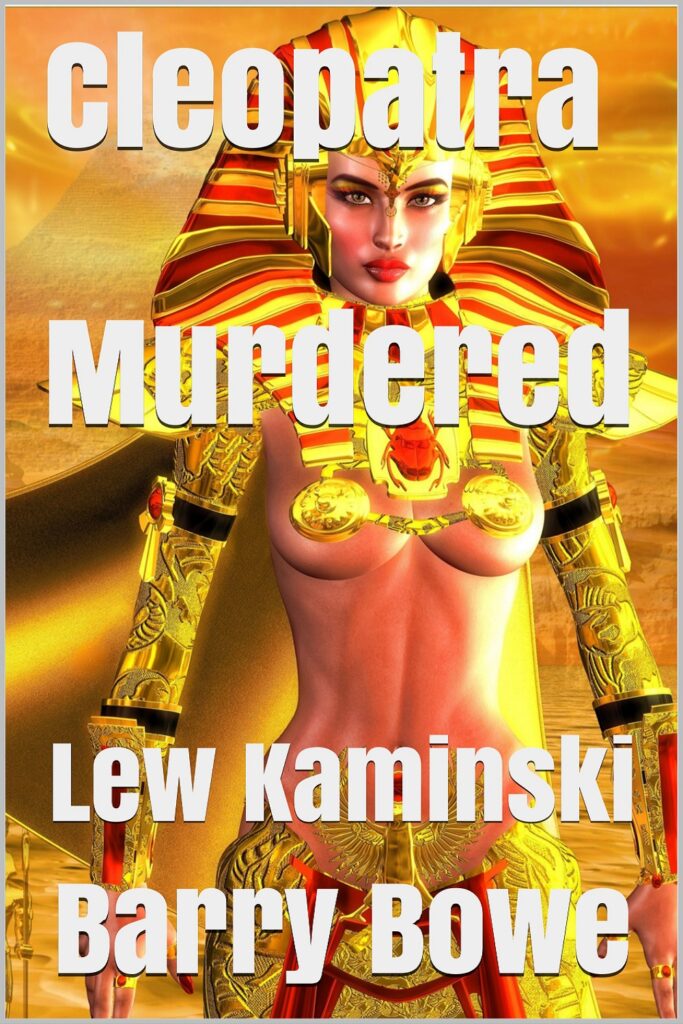
Comments
No Comments